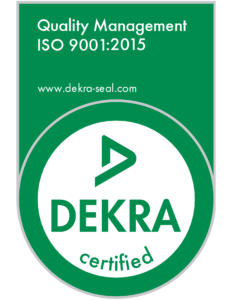Article Category: Ultrasonic Welding
- Home
- Knowledge Base
- Ultrasonic Welding
Ultrasonic Welding
Maintenance
1 ArticleUltrasonic Tooling
24 ArticlesMaterials and Design
3 ArticlesUltrasonic Techniques
6 ArticlesUltrasonic Joint Design
2 ArticlesUltrasonic Process Control
23 ArticlesCan ultrasonic welding be used in the manufacturing of medical devices?
Ultrasonic welding is widely used in the assembly of medical devices due to its ability to provide consistent and high-quality...
How do mold release agents affect in ultrasonic welding?
Mold release agents are typically used to facilitate the release of plastic parts from the mold during the injection molding...
Can ultrasonic welding create a hermetic seal?
Ultrasonic welding is an ideal method for creating a hermetic seal because of its ability to create a strong and...
How does hygroscopicity affect in ultrasonic welding?
Hygroscopicity is the ability of a material to absorb moisture from the environment. In ultrasonic welding, the presence of moisture...
What is the best way to seal an electronics enclosure?
Ultrasonic welding is a popular and effective method for sealing electronics enclosures due to several reasons: Overall, ultrasonic welding offers...
What is the difference between infrared welding and ultrasonic welding?
Infrared welding and ultrasonic welding are two different methods of joining plastics. The main difference between the two is the...
How do you reduce flash in ultrasonic welding?
Flash is a common issue that can occur during ultrasonic welding, where excess material is pushed out from the welded...
Why is ultrasonic welding better than screwing parts together?
Ultrasonic welding has several advantages over using traditional mechanical fasteners such as bolts, screws, and adhesives. Here are a few...
What is ultrasonic sewing?
Ultrasonic sewing, also known as ultrasonic bonding, is a process that uses high-frequency mechanical vibrations to bond two or more...
Can Tritan plastic be joined with ultrasonic welding?
Yes, Tritan plastic can be joined with ultrasonic welding. Ultrasonic welding is commonly used to join various types of thermoplastics,...
What is a booster in ultrasonic welding?
A booster is an acoustic tool used in ultrasonic welding that amplifies and transmits vibrations from the ultrasonic transducer to...
What wattage is available in ultrasonic welding?
The wattage available in ultrasonic welding can vary depending on the specific application and equipment being used. Generally, ultrasonic welding...
What are the different types of horns in ultrasonic welding?
In ultrasonic welding, a horn (also called a sonotrode) is used to apply high-frequency vibrations to the parts being welded....
What industries use ultrasonic welding?
The industries listed below utilize ultrasonic welding in their manufacturing processes:
What are the advantages of using ultrasonic welding?
The advantages of using ultrasonic welding are:
1) No consumables
2) Fast cycle times
3) Very accurate
4) Highly repeatable
5) Versatile equipment
6) Parts are easily recycled
7) Environmentally safe
Knowledge Base Categories
- Ultrasonic Welding
- Ultrasonic Transducer
- Ultrasonic Transducer
- Ultrasonic Tooling
- Ultrasonic Techniques
- Ultrasonic Staking
- Ultrasonic Process Optimization
- Ultrasonic Process Control
- Ultrasonic Joint Design
- Ultrasonic Horns
- Ultrasonic Boosters
- Spin Welding
- Materials and Design
- Material Selection
- Maintenance
- Infrared Welding
- Heat Staking
- Gluing and Solvent Bonding
- Assembly Methods
Contact Info
- Monday - Friday
8:00 AM - 4:00 PM ET - 321-622-8584
- 3153 Skyway Circle, Melbourne, FL 32934
- [email protected]
Registrations
UEI ID: Z6T3GLT5YFZ9
CAGE Code: 8B6Y5
DUNS #: 105213696
NAICS Codes: 339999
ISO 9001:2015 Certified

© 2025 Trinetics Group. All Rights Reserved
